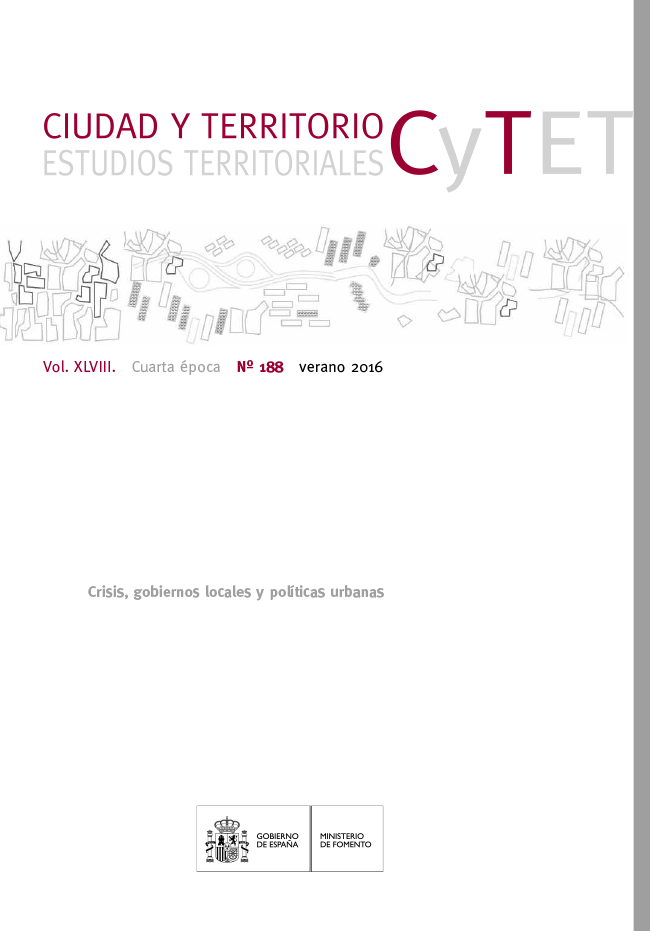Social Movements and Local Urban Policies in Times of Crisis: The Torrelodones Case
Keywords:
Social movements, urban policies, Torrelodones (Madrid)Abstract
The article explores in depth the origin of a social movement of local environmental nature
that emerged in 2005, at the height of the housing boom, against an urban requalification that
sought to develop the then usual binomial “golf course and estate of detached houses” in a part of
the municipality of high environmental value. An analysis of the causes, characteristics and
consequences of the housing bubble on the basis of the case of Torrelodones is provided. It analyzes
the evolution of this citizens’ associative movement and its institutionalization through the creation
of a political party that ran for the first time in the 2007 local elections becoming city government,
and got the absolute majority four years later. Finally, it delves into the changes in governance, in
urban policies and into “Vecinos por Torrelodones” government management priorities of the crisis
in order to determine to what extent a change in local governance has occurred and what has been
its scope.
Downloads
Downloads
Published
How to Cite
Issue
Section
License
Copyright (c) 2016 Luis A. Collado Cueto, Santiago Fernández Muñoz

This work is licensed under a Creative Commons Attribution-NonCommercial-NoDerivatives 4.0 International License.
Considering the provisions of the current legislation on Intellectual Property, and in accordance with them, all authors publishing in CyTET give -in a non-exclusive way and without time limit- to the Ministry of Transport, Mobility and Urban Agenda the rights to disseminate, reproduce, communicate and distribute in any current or future format, on paper or electronic, the original or derived version of their work under a Creative Commons Attribution-NonCommercial-NoDerivative 4.0 license International (CC BY-NC-ND 4.0), as well as to include or assign to third parties the inclusion of its content in national and international indexes, repositories and databases, with reference and recognition in any case of its authorship.
In addition, when sending the work, the author(s) declares that it is an original work in which the sources that have been used are recognized, committing to respect the scientific evidence, to no longer modify the original data and to verify or refute its hypothesis. Author(s) also declare that the essential content of the work has not been previously published nor will it be published in any other publication while it is under evaluation by CyTET; and that it has not been simultaneously sent to another journal.
Authors must sign a Transfer of Rights Form, which will be sent to them from the CyTET Secretariat once the article is accepted for publication.
With the aim of promoting the dissemination of knowledge, CyTET joins the Open Journal Access (OA) movement and delivers all of its content to various national and international indexes, repositories and databases under this protocol; therefore, the submission of a work to be published in the journal presupposes the explicit acceptance by the author of this distribution method.
Authors are encouraged to reproduce and host their work published in CyTET in institutional repositories, web pages, etc. with the intention of contributing to the improvement of the transfer of knowledge and the citation of said works.








 Enlace a CyTET en Linkedin
Enlace a CyTET en Linkedin